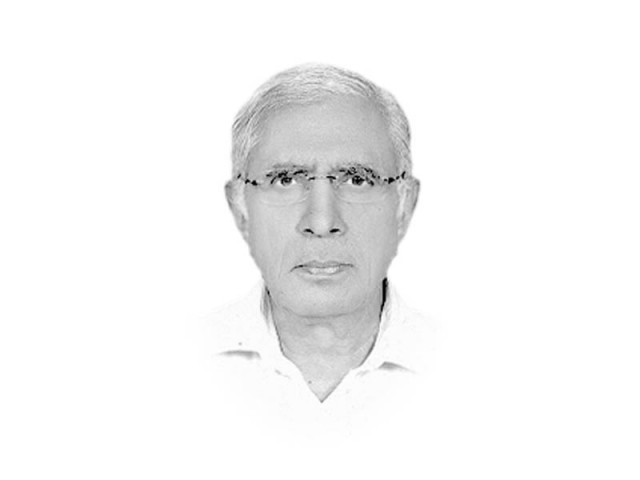Media’s role in war against terrorism
What is needed at such times is to be truthful as far as it is permitted by the situation on the ground

The writer served as Executive Editor of The Express Tribune from 2009 to 2014
War is too serious a matter to be left to generals, so said George Clemenceau, a journalist-cum-physician who had also served as the prime minister of France (1906-09). So, it would be totally wrong and professionally incorrect on the part of Pakistani media to stop questioning the moves the authorities would be making on the advice of generals and the decisions they would be taking concerning the war against terrorism, which after a very long wait and having cost us the lives of over 50,000 Pakistanis including about 10,000 troops, and hundreds of school-going children plus an estimated Rs80 billion, is being owned by the authorities as our own after having remained, in their estimation, somebody else’s for almost 12 long years. During this long-drawn state of denial, a good number of media professionals had been shouting from every rooftop, at the risk of being declared traitors and unpatriotic, that it is our war now, no matter how, why and when it was started. But to no avail.
Governments — both democratic and non-democratic, of countries both developed and developing — readily blame the media for their own failures. And after having persuaded themselves into believing this self-deceiving fiction, they usually tend to apply thoughtless controls on the media, closing off their own view of what is really happening under their very noses causing them naturally to take wrong decisions, which more often than not lead to disastrous consequences taking the country in the direction totally opposite to the one desired. It is in this worrisome perspective that Pakistani media professionals are examining the moves that the government is seemingly making to render the media more ‘responsible’ while performing its professional duties during the ongoing war on terror, which it has owned up only recently in lock-stock with the army.
No doubt, a part of the national media also suffers from the same mindset malady that has afflicted a good proportion of our society. Like in all other branches, official and non-official, civil and military, the media also has its own quota of madcaps who sympathise and empathise with the distorted ideology that is driving the terrorists to kill in cold blood. And as we all know, this mindset has not germinated in a vacuum. It is one of the sad legacies of the first Afghan war (1979-1988) that was actually waged by the American CIA in close cooperation with our own secret agencies. Even Osama bin Laden was known to have been a classical consequence of the CIA-manufactured jihad.
In times of war, propaganda based on falsehood causes more harm than good to the national interest. What is needed at such times is to be truthful as far as it is permitted by the situation on the ground. Of course, the government has the right to withhold information that falls in the domain of war strategy and tactics or such information the disclosure of which would enable the enemy to pre-empt our battle plans. The factual state of the war needs sharing with the media, leaving it to media professionals to use the information as they deem fit. With the war progressing in the right direction and the counter-narrative gaining ground at the same time, the extremist mindset that has afflicted not an insignificant part of our society as also a set of influential media professionals, would gradually fade away reducing gradually the market for pro-manufactured jihad related stories.
Published in The Express Tribune, January 7th, 2015.
Like Opinion & Editorial on Facebook, follow @ETOpEd on Twitter to receive all updates on all our daily pieces.















COMMENTS
Comments are moderated and generally will be posted if they are on-topic and not abusive.
For more information, please see our Comments FAQ